Dependency updates are an inevitable part of software engineering. With every major language offering its own package ecosystem, keeping up with these updates — some of which address critical security issues — can quickly become tedious.
TLDR?
- My dependency update PRs are automatically merged by a tool
- Reports of my GitHub Actions runs are generated by another tool
The problem
I maintain several open source projects on GitHub. While GitHub provides a handy tool like Dependabot to regularly scan repositories and create pull requests for dependency updates, keeping track of these PRs can quickly become overwhelming. My notifications panel often looks like this:
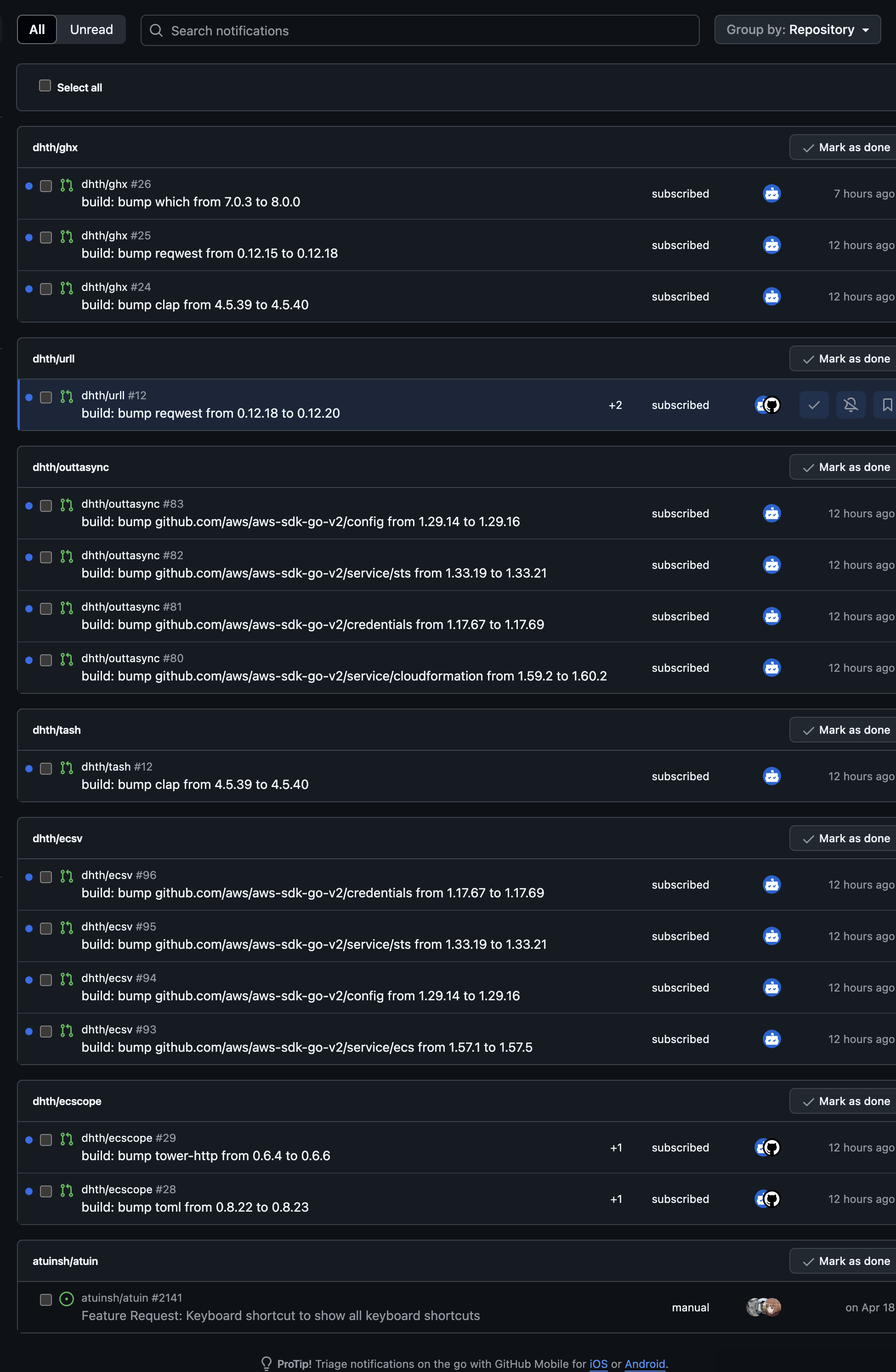
In the screenshot above, only the last notification isn’t related to dependency updates.
Ideally, these PRs should be merged as soon as all checks pass, keeping my notifications page tidy and allowing me to focus on the PRs and issues that matter most.
After manually merging these dependency update PRs for a while, I realized I needed a better approach. I wanted automation that could merge these PRs if they met certain criteria, while still giving me visibility into what was merged. Additionally, I needed an easy way to monitor GitHub Actions runs across my repositories to quickly spot if any of these merges broke CI.
The solution
mrj
When I couldn’t find a ready-to-use solution for this problem, I decided to create my own: mrj.
mrj is a simple command-line tool that takes a configuration describing conditions, and then merges PRs automatically.
Its configuration looks like this:
When run, it produces output like this:
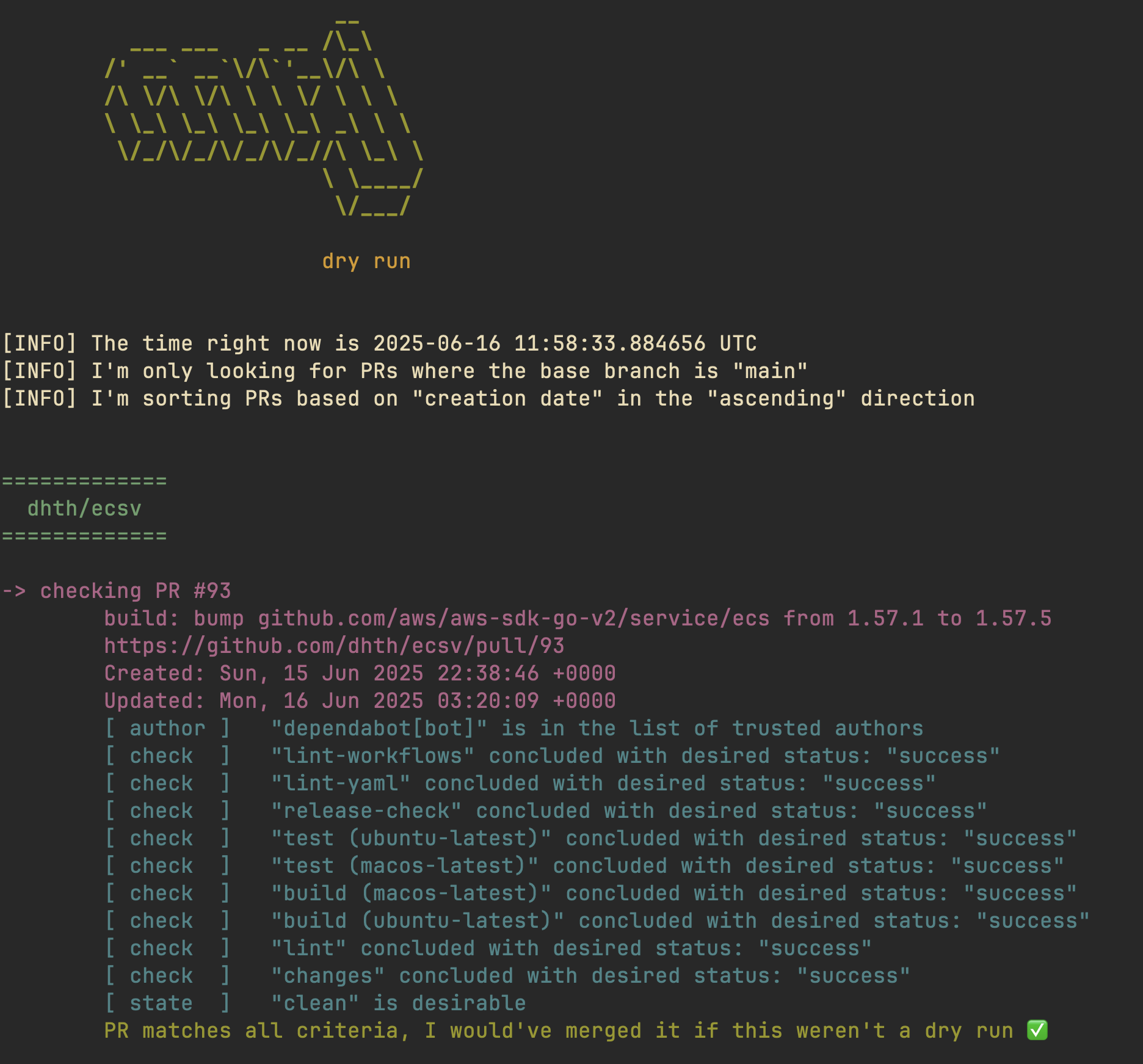
As mentioned earlier, I also wanted visibility into which PRs were merged. To address this, I added a feature to mrj that generates reports based on past runs. These reports can be hosted as webpages anywhere. Mine are hosted here.
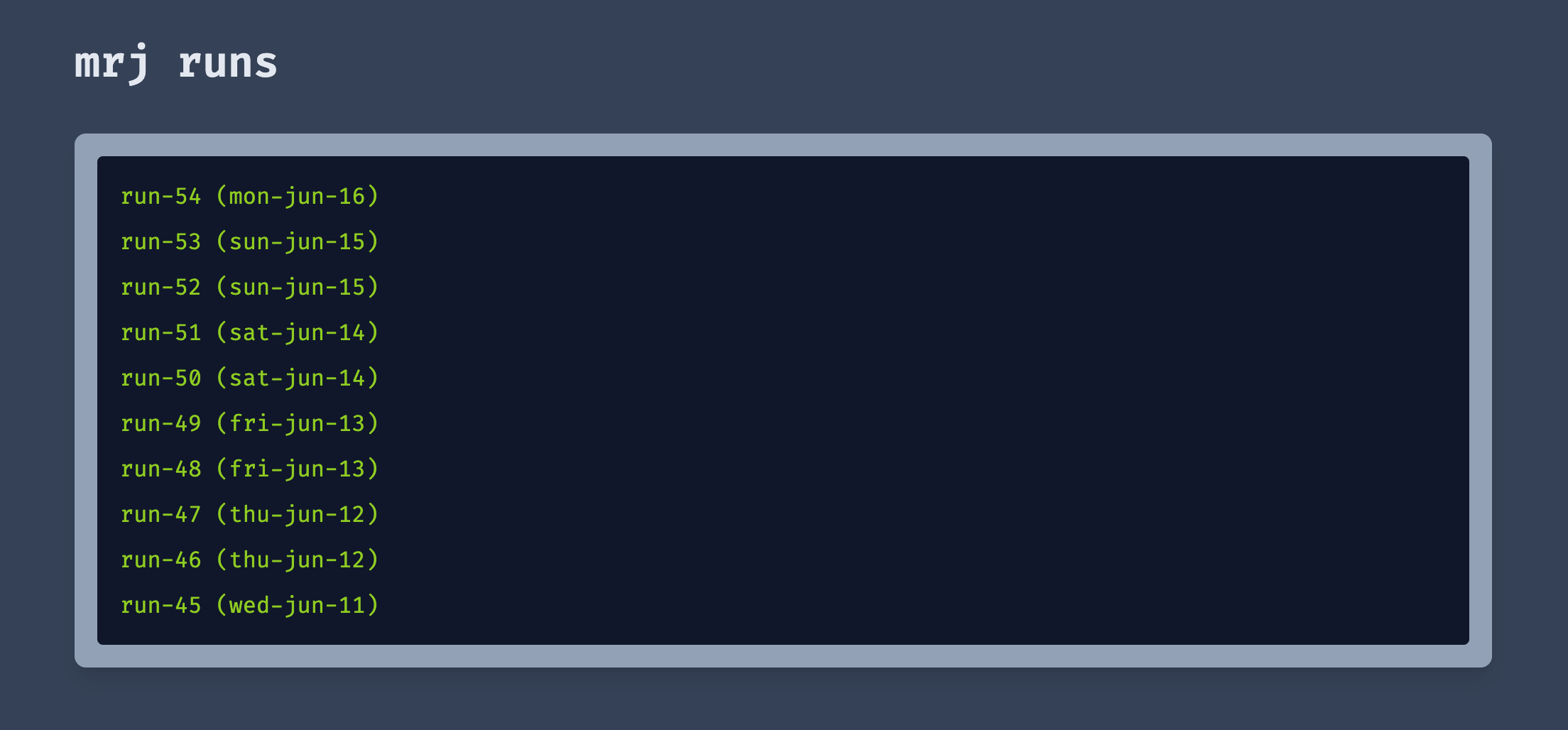
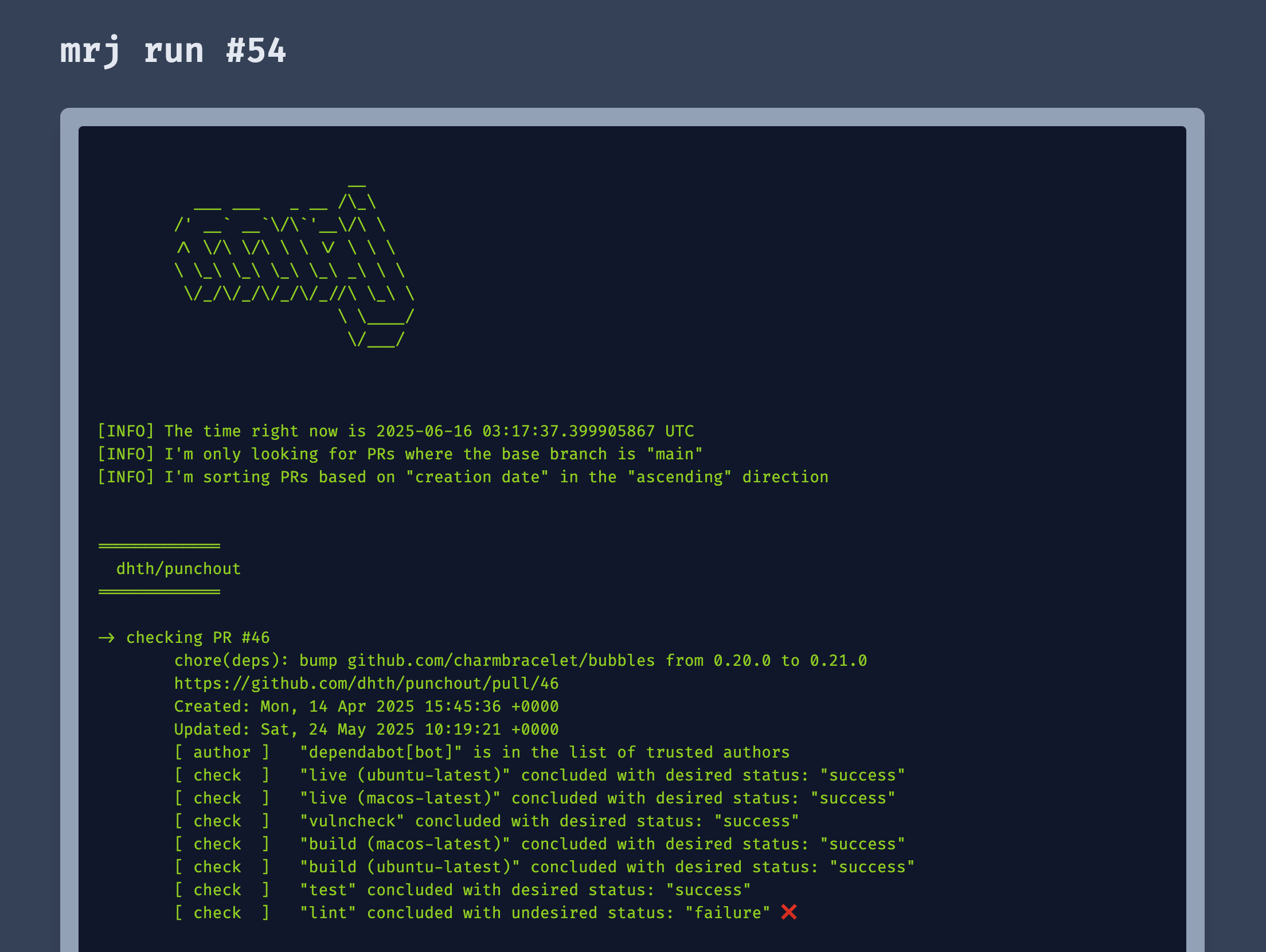
mrj now handles merging all of my dependency update PRs. I run it on a schedule here.
With automatic merging of PRs taken care of, I needed an easy way to spot if any of these merges broke CI for my repositories. For this, I use a tool I created a while back: act3.
act3
act3 is a command-line tool that collects the results of the last three runs of your GitHub Actions. It can take either a predefined list of workflows or a list of repositories to fetch results for.
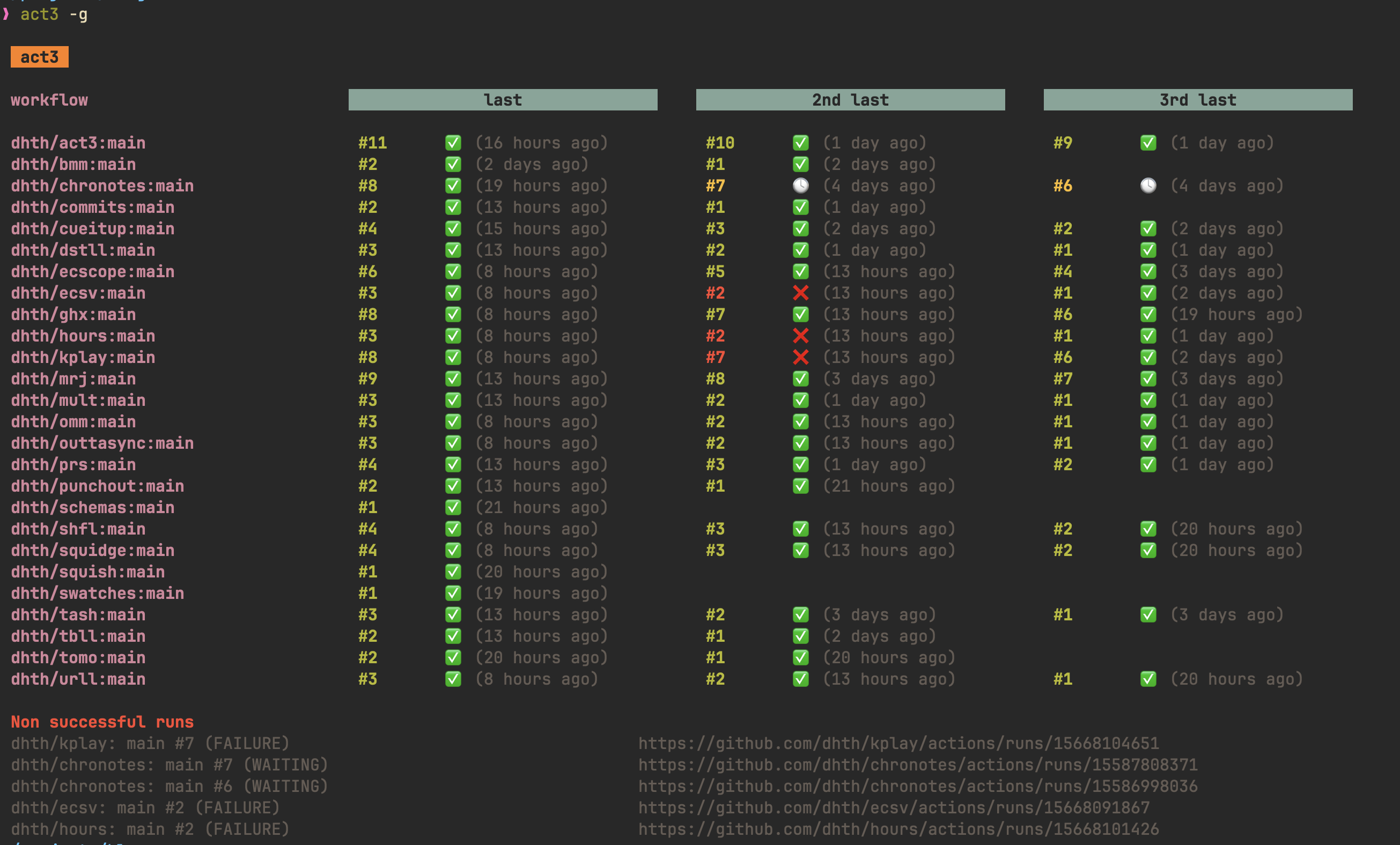
act3 can also generate HTML reports, which can be hosted anywhere. I run act3 on a daily schedule (after mrj has run), and have the reports deployed to GitHub Pages (you can view them here). I generate reports for three types of GitHub Actions workflows:
- merges to main
- pull requests
- vulnerability checks (run on a schedule)
If I see a red cross anywhere, it’s a clear signal that a particular CI run failed, so I can address it quickly.
Conclusion
I’ve only recently rolled out these workflows, but they’ve already proven quite useful. I let mrj run every night to handle merging dependency update PRs for me. Every now and then, I check the act3 dashboard — if I see all green check marks, that’s a good sign that my repositories are in good shape.
Of course, there’s always a chance that a dependency update, even if it passes checks, could break some functionality in a project. To reduce the risk of this happening, I’ve been adding more and more tests — especially end-to-end tests — to my projects.
If you’re interested in automating your own dependency updates, check out mrj and act3. Feel free to send suggestions or bug reports via GitHub issues.
.png)


